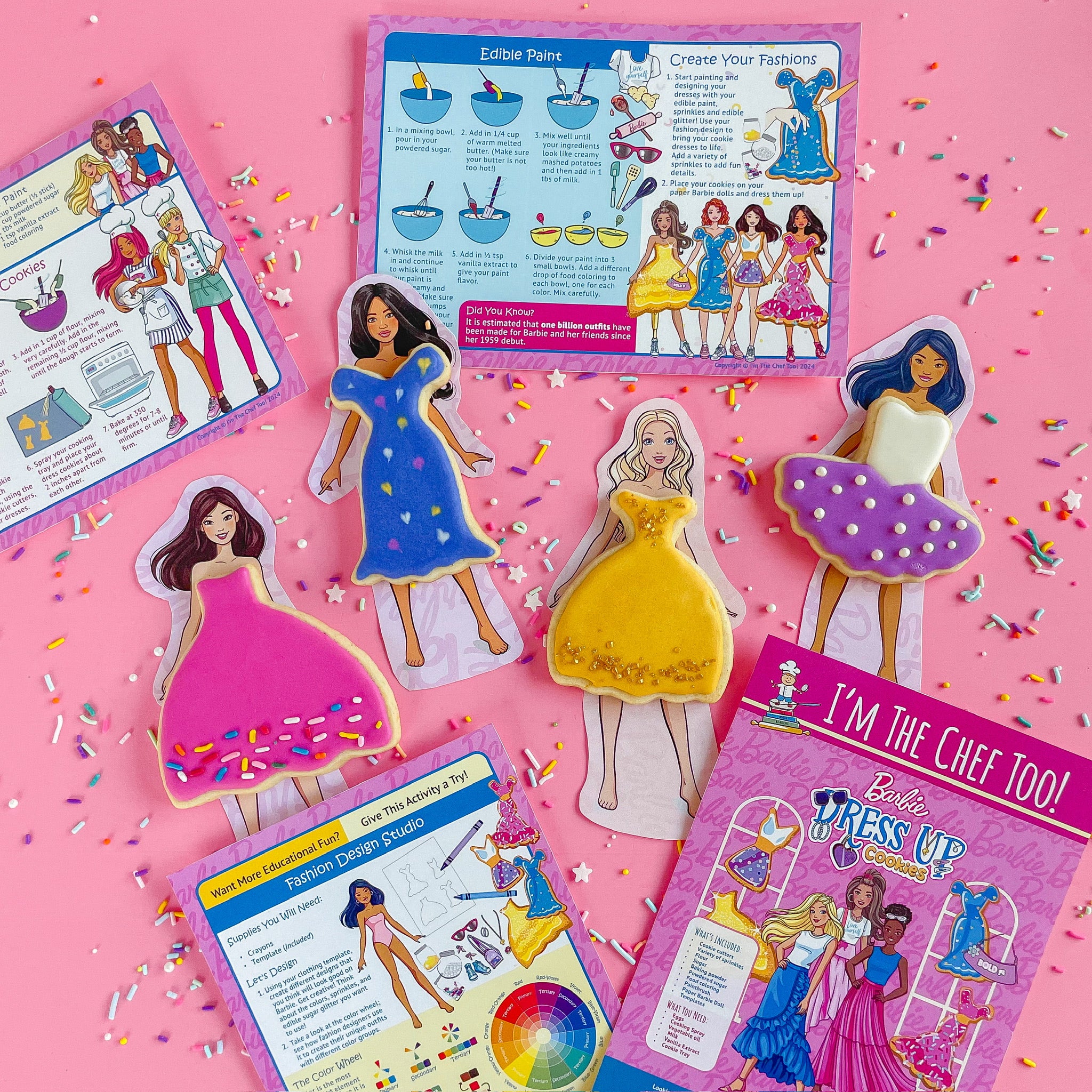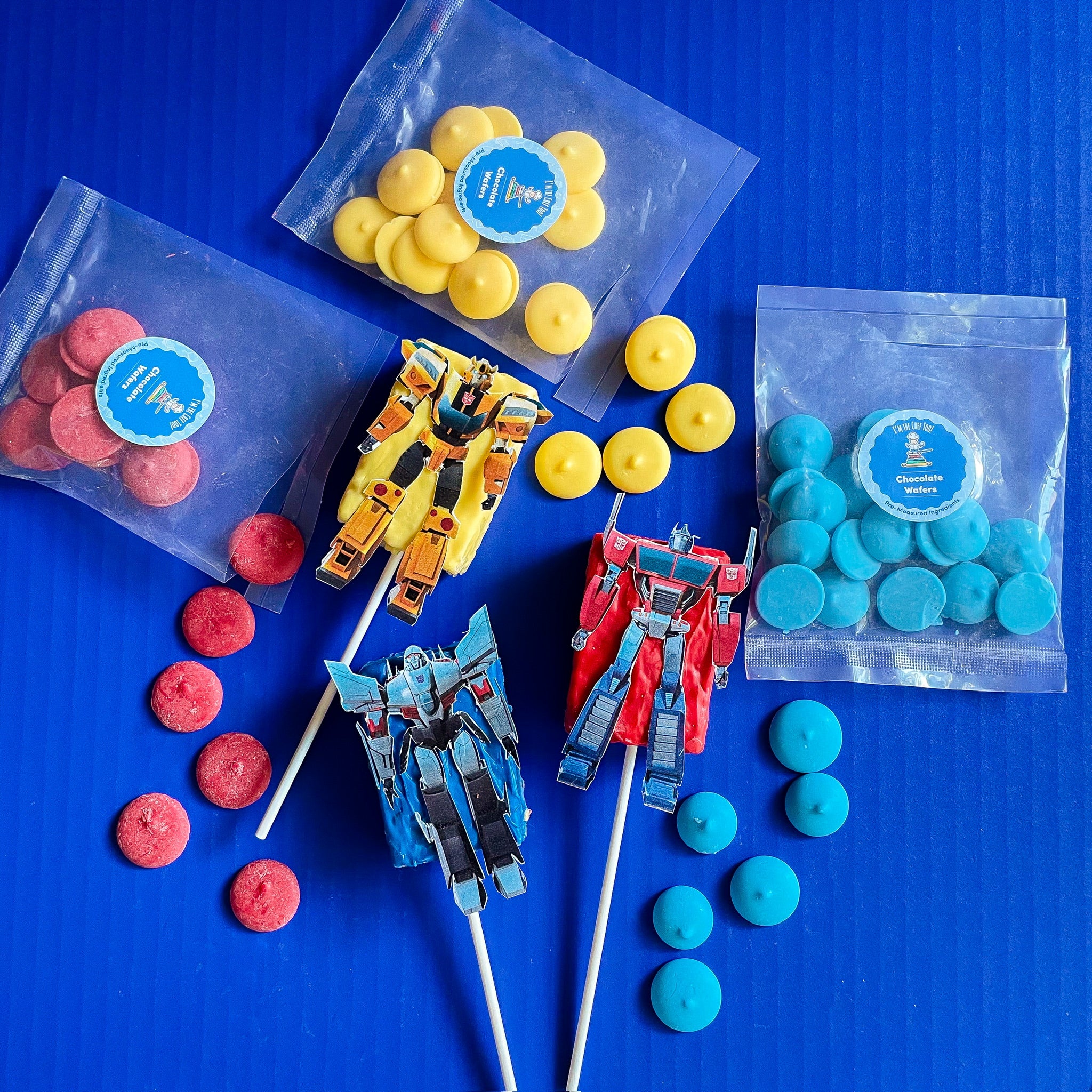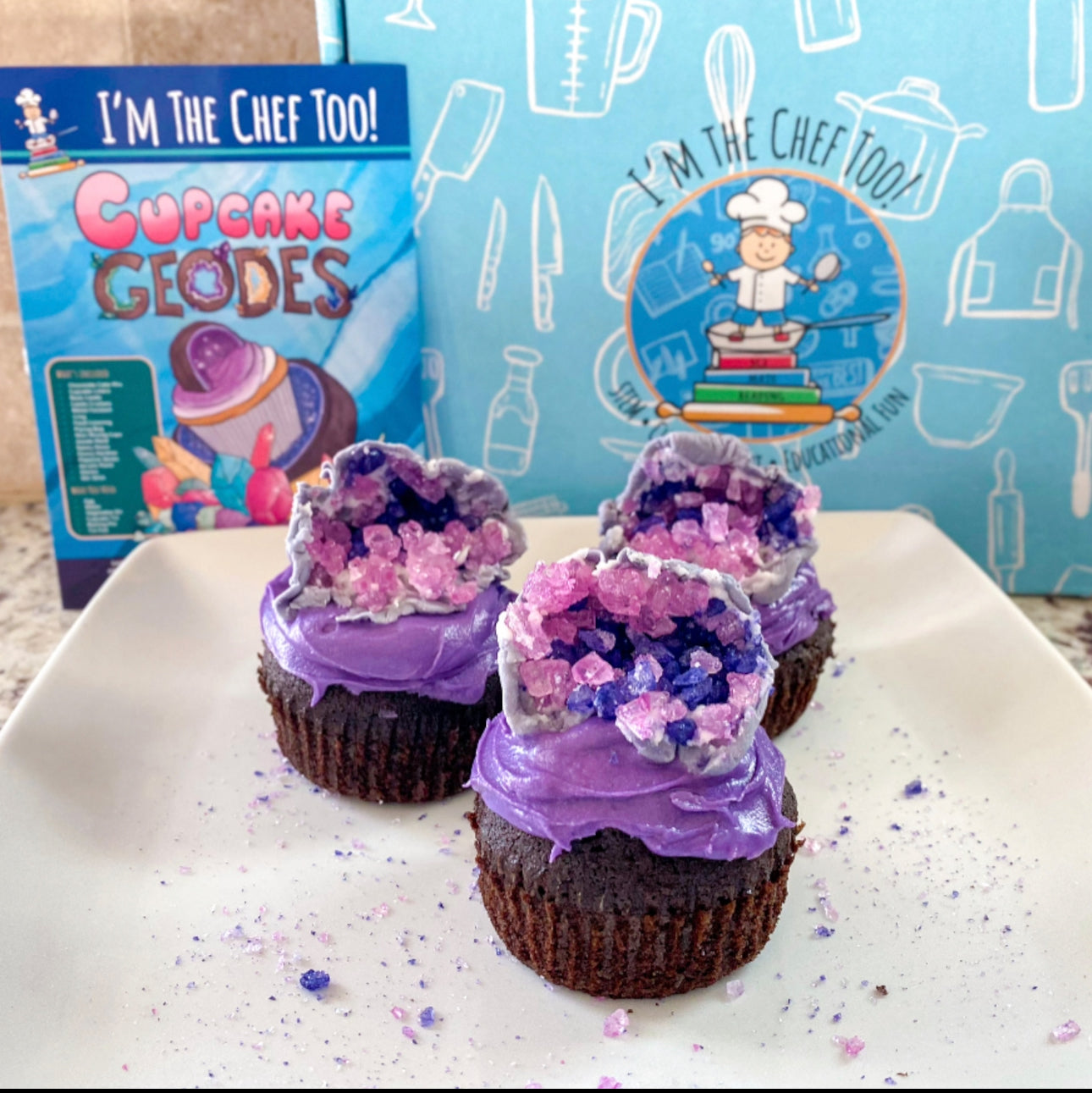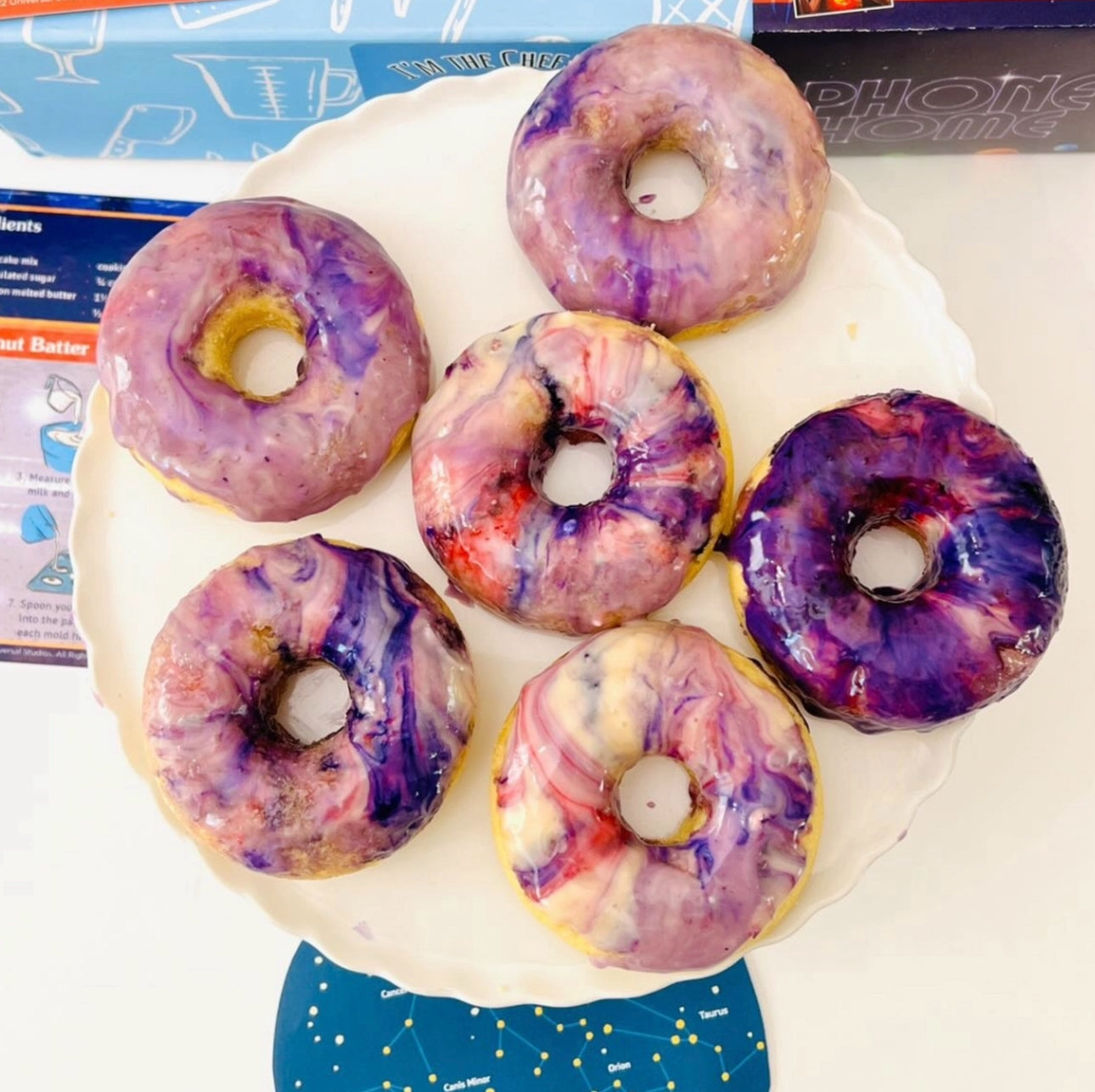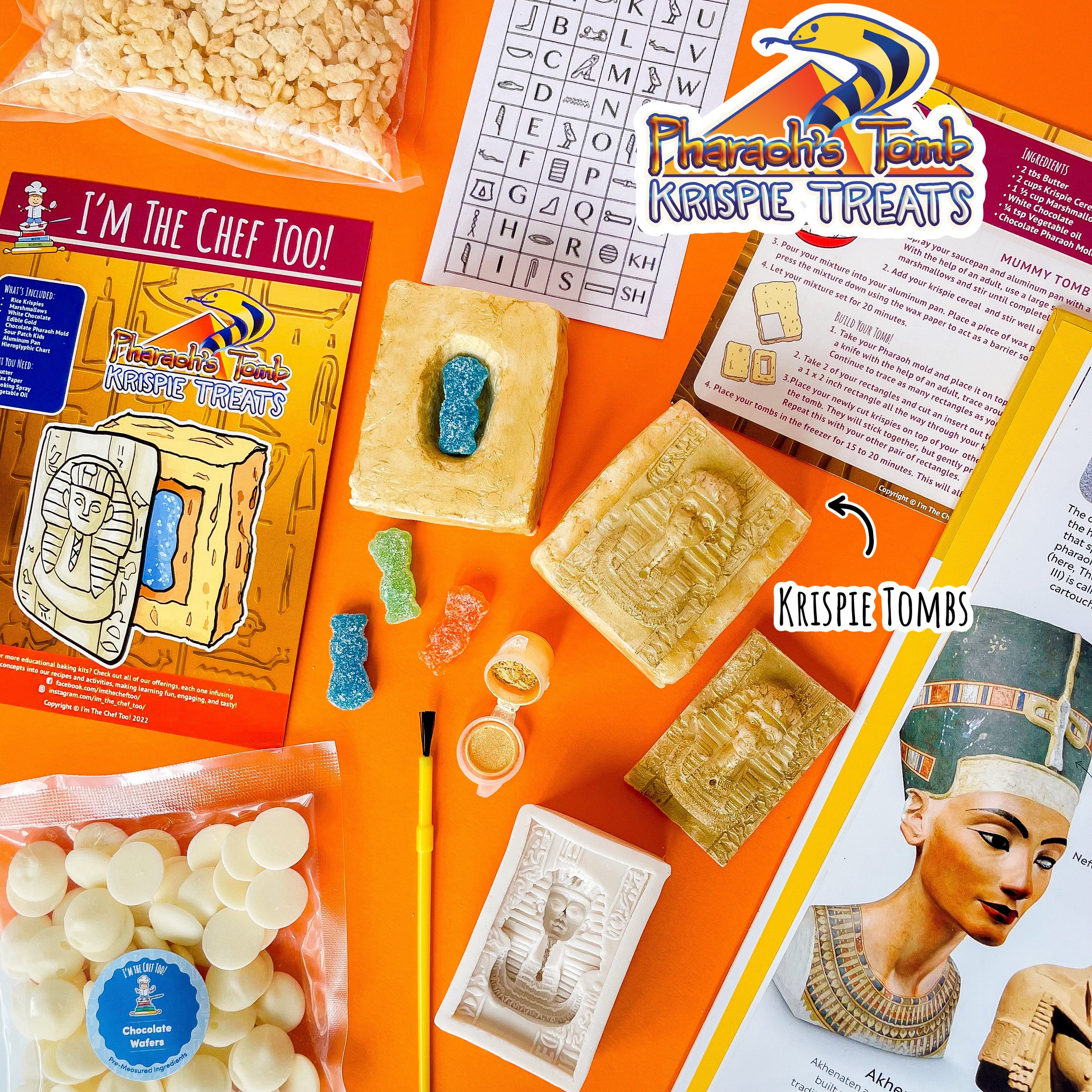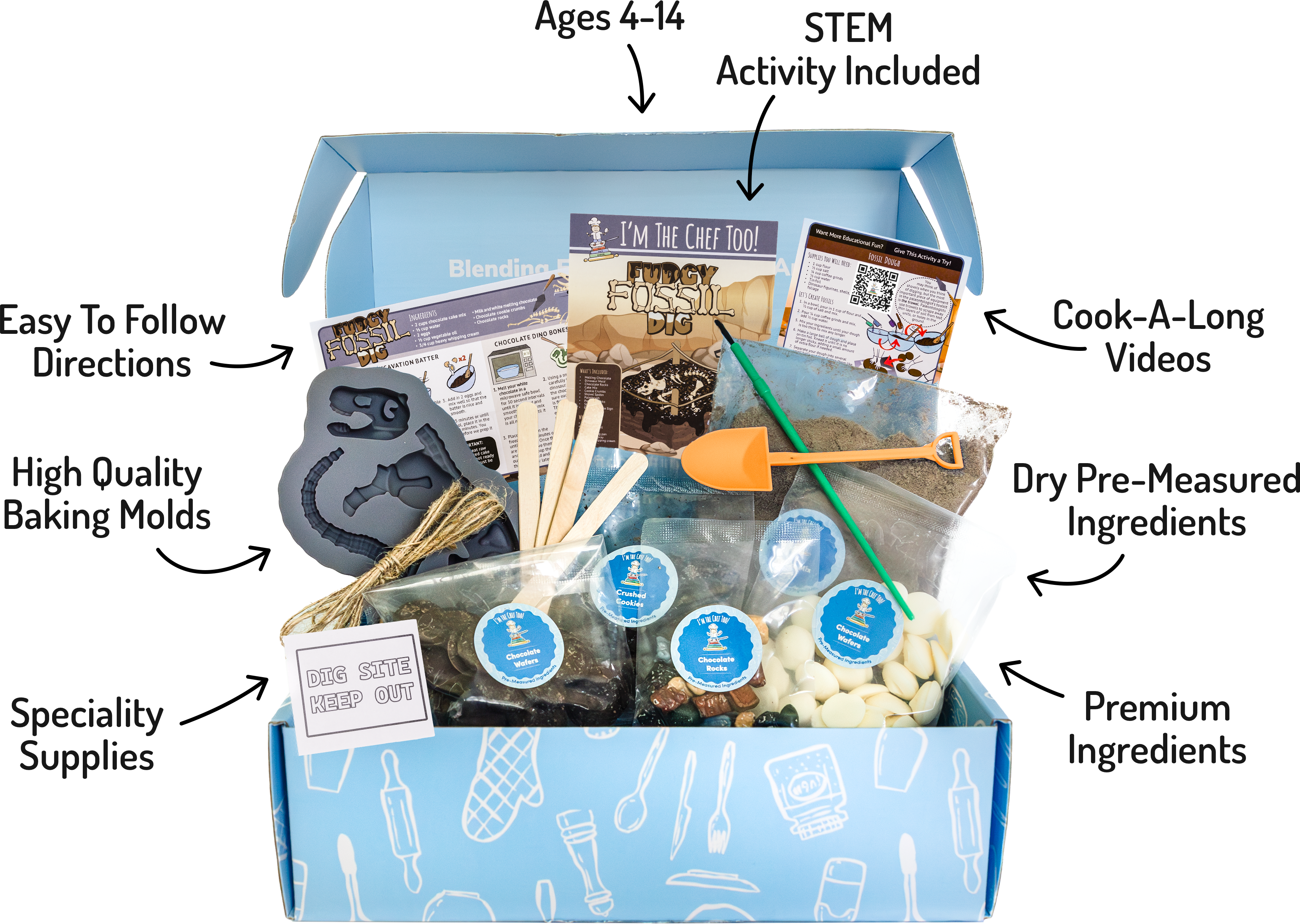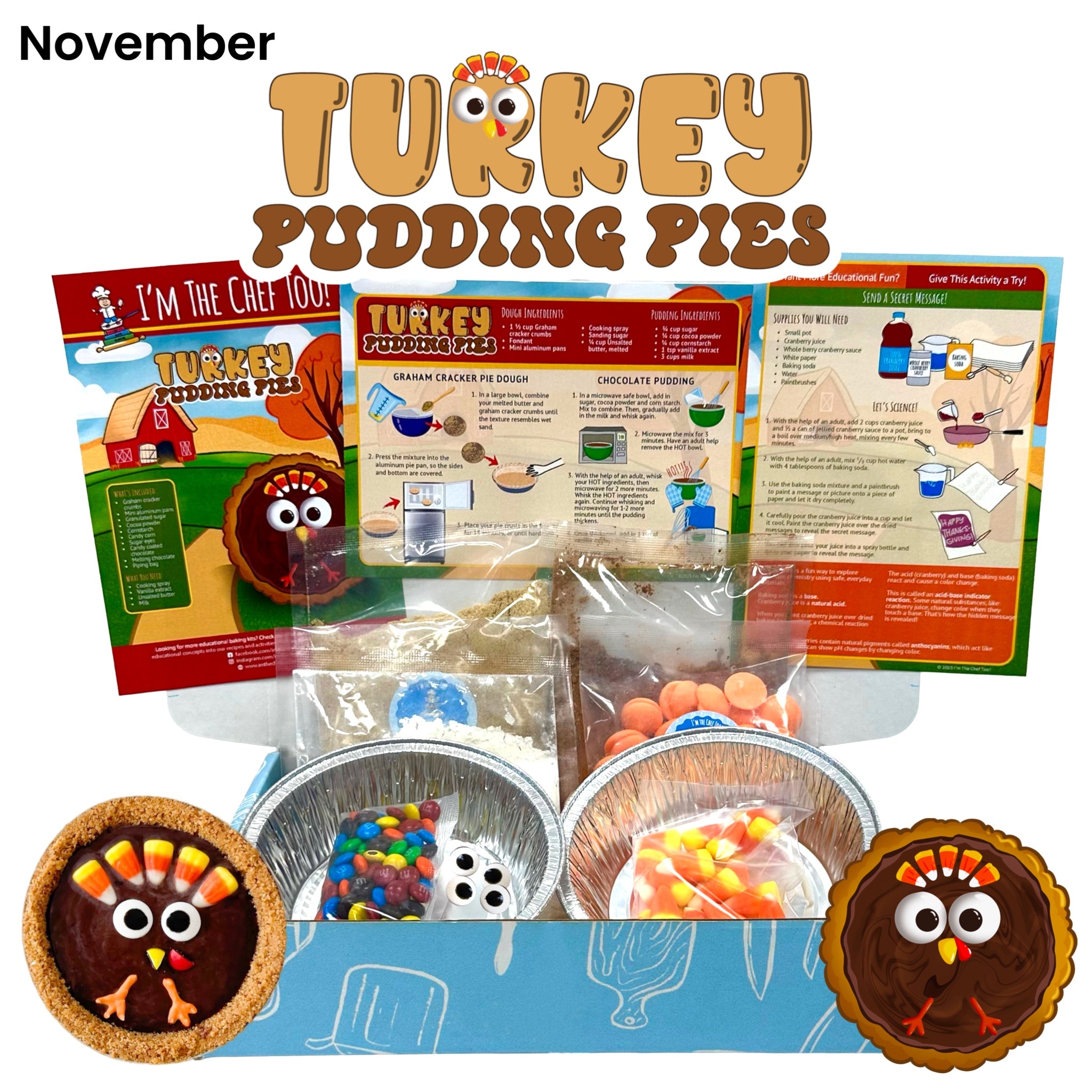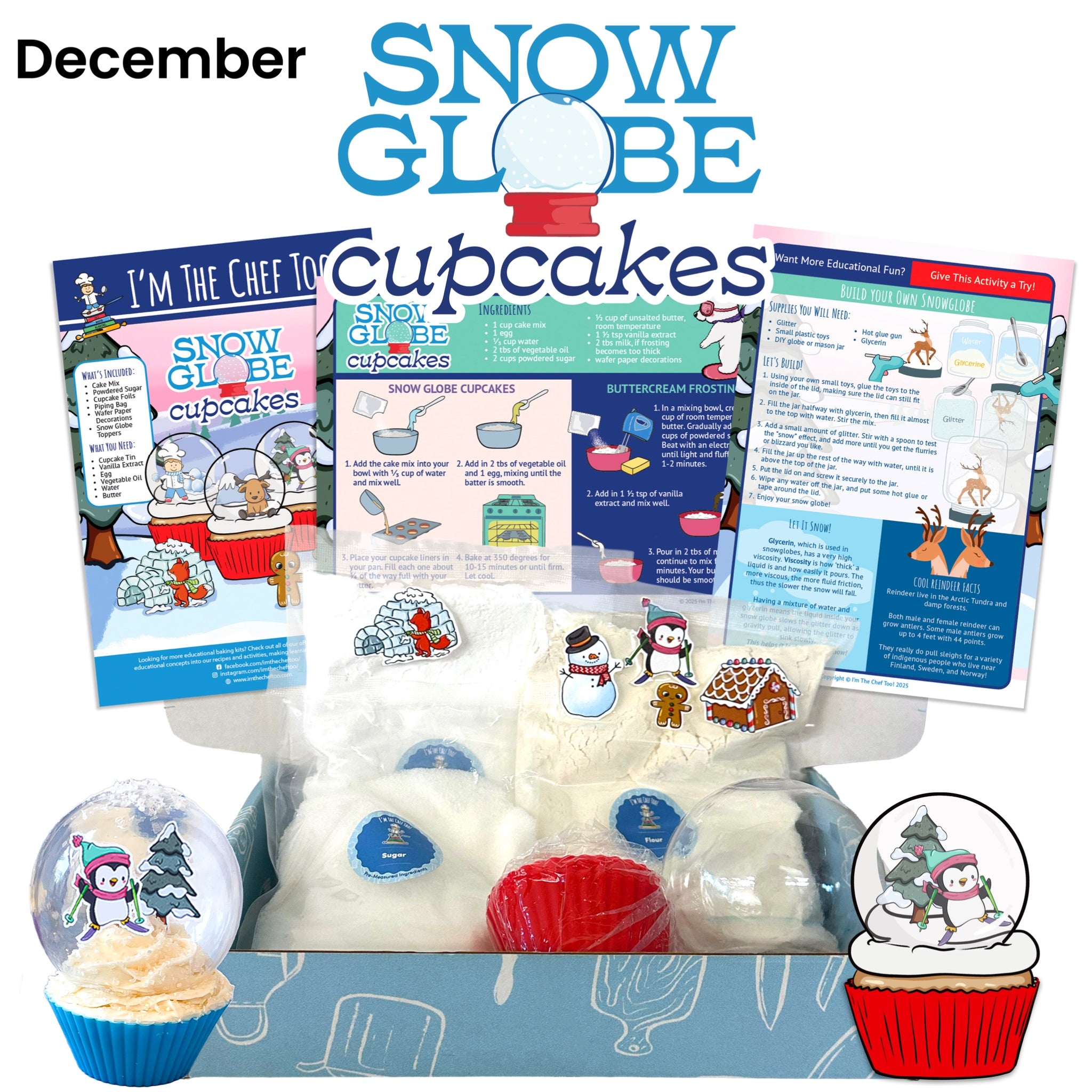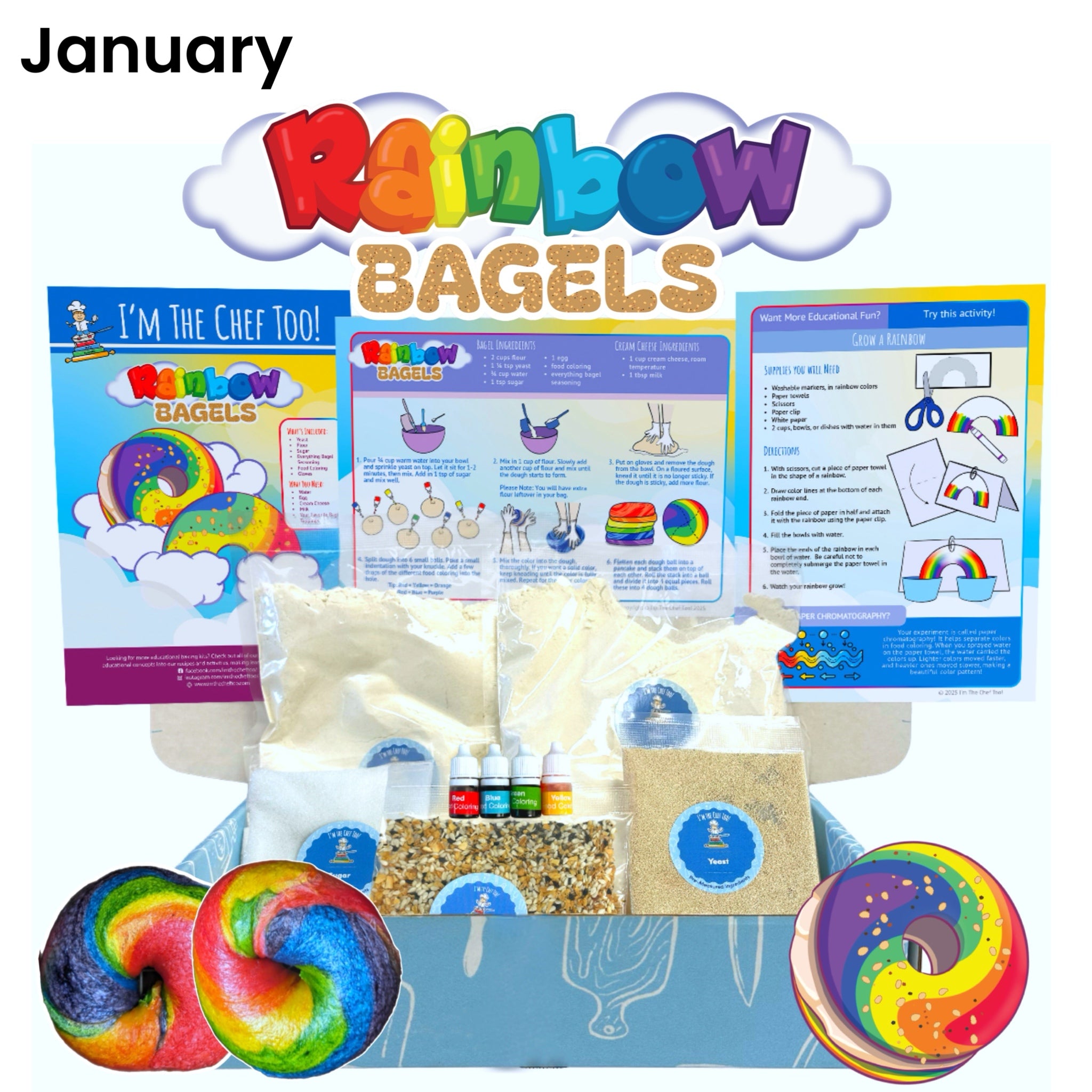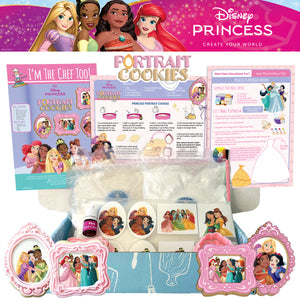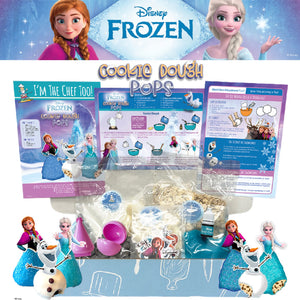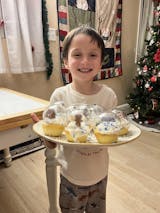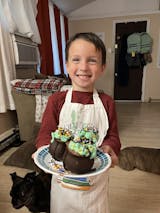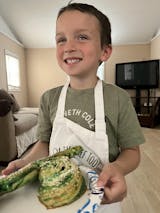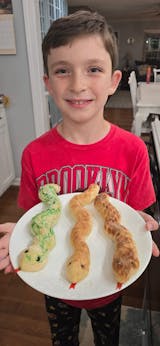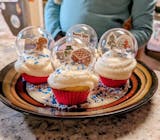Table of Contents
- Introduction
- Understanding the Buzzwords: What is Project-Based Learning (PBL) and STEM Education?
- The Unbeatable Combination: Why PBL is Essential for STEM Success
- Designing Effective Project-Based Learning STEM Experiences at Home
- I'm the Chef Too!: Our Unique Approach to Project-Based Learning STEM Education
- Overcoming Common Challenges in Home-Based PBL STEM
- Beyond the Kitchen: Extending PBL STEM Learning
- Conclusion
- FAQ Section
Have you ever watched a child’s eyes light up, completely engrossed in building a towering block structure, meticulously mixing ingredients for a mud pie, or earnestly trying to figure out why their paper airplane won't fly further? That intense focus, the trial and error, the pure joy of discovery – that's the essence of learning at its most powerful. It's not just play; it's a profound engagement with the world around them, a natural inclination towards what educators call project-based learning (PBL) and STEM education.
In today's dynamic world, preparing our children for an unpredictable future means equipping them with more than just facts. It means cultivating curiosity, resilience, and the ability to think critically and creatively. This is where the powerful combination of project-based learning and STEM education truly shines. This post will delve deep into what makes these educational philosophies so impactful, explore their complementary nature, and reveal how you can integrate them into your child's life, fostering a lifelong love for exploration and discovery. We'll show you how at I'm the Chef Too!, we've harnessed this synergy to create unforgettable "edutainment" experiences, blending food, STEM, and the arts into delicious, hands-on adventures that spark joy and learning.
Introduction
Imagine a classroom where students aren't just memorizing formulas but are actively designing a miniature city, testing different bridge structures, or investigating local environmental issues. Or picture your own kitchen transforming into a vibrant laboratory where scientific principles come alive with bubbling reactions and delicious outcomes. This isn't just a dream; it's the reality of project-based learning (PBL) integrated with STEM (Science, Technology, Engineering, and Mathematics) education, a pedagogical approach gaining significant traction for its profound impact on children's development. We believe this innovative method is key to cultivating engaged, confident, and skilled learners.
For parents and educators alike, the terms "STEM" and "PBL" often surface in discussions about modern education. While they might seem like distinct concepts, we see them as two sides of the same incredibly valuable coin. STEM provides the essential content – the foundational knowledge in science, technology, engineering, and mathematics – while PBL offers the dynamic framework, the "how-to," for truly bringing that content to life. Together, they create a rich, immersive learning environment that transcends traditional rote memorization. Our purpose here is to explore this powerful alliance, highlighting how this integrated approach not only boosts academic outcomes but also nurtures crucial 21st-century skills like critical thinking, creativity, collaboration, and communication. We're dedicated to showing you how to unlock your child's innate potential through tangible, hands-on experiences, proving that the most complex subjects can be understood, enjoyed, and even tasted!
At I'm the Chef Too!, our mission is rooted in this very philosophy. We understand that children learn best by doing, by exploring, and by experiencing the joy of discovery firsthand. That's why we've pioneered a unique "edutainment" approach that seamlessly blends food, STEM, and the arts. Our kits, developed by mothers and educators, transform your kitchen into a vibrant learning laboratory, making abstract concepts concrete and delicious. We believe that by engaging all senses in a fun, screen-free environment, we not only spark curiosity but also facilitate invaluable family bonding moments. Throughout this comprehensive guide, we'll illustrate how embracing project-based learning in STEM education can empower children to become future innovators, problem-solvers, and passionate lifelong learners, and how we're here to support you every step of the way.
Understanding the Buzzwords: What is Project-Based Learning (PBL) and STEM Education?
Before we dive into the incredible synergy between project-based learning and STEM education, let's take a moment to clearly define each of these powerful educational philosophies. Understanding their core tenets will illuminate why they are so incredibly effective when combined.
What is STEM Education?
STEM is an acronym for Science, Technology, Engineering, and Mathematics. It's much more than just a collection of individual subjects; it's an interdisciplinary approach to learning that integrates these four fields into a cohesive learning paradigm. At its heart, STEM education is about applying rigorous academic concepts to real-world challenges. It connects classroom learning to community, work, and the global landscape, aiming to develop "STEM literacy" – the ability to understand and apply scientific and mathematical principles, technological processes, and engineering design thinking. The ultimate goal of STEM education is to equip students with the knowledge and skills necessary to navigate and innovate in our increasingly complex and technologically driven world, preparing them to compete in the new economy. It moves beyond teaching subjects in isolation, encouraging students to see the connections and interdependencies between them.
What is Project-Based Learning (PBL)?
Project-based learning, or PBL, is an innovative instructional method where students learn by actively engaging in meaningful, real-world projects. Instead of passively receiving information, students are presented with authentic problems or complex questions that capture their interest and provoke deep thinking. They then acquire and apply new knowledge and skills within the context of solving these problems. PBL emphasizes critical thinking, inquiry, collaboration, and problem-solving. It's about students taking ownership of their learning journey, exploring issues, conducting research, developing solutions, and presenting their findings. Advocates of PBL highlight its effectiveness in preparing students for the kind of thinking and collaboration required in the modern workplace and for solving the complex challenges of our world.
The Natural Synergy: Why PBL is the Ideal Vehicle for STEM
When we look closely at the definitions of STEM and PBL, three powerful commonalities emerge, revealing why they are not just compatible but truly foundational to one another:
- Real-World, Authentic Problems, and Contexts: Both philosophies prioritize engaging students with challenges that mirror those found in the real world. STEM aims to apply academic concepts to practical situations, while PBL's core idea is to captivate students' interest through real-world problems. This shared focus ensures that learning isn't just theoretical; it's tangible, relevant, and prepares children to tackle actual societal and scientific issues. They learn that knowledge isn't abstract but a powerful tool for understanding and shaping their environment.
- Interdisciplinary Approach: A hallmark of STEM education is its rejection of siloed learning. Students are encouraged to draw connections between science, technology, engineering, and mathematics. Similarly, PBL models real-world problems that rarely fall neatly into a single academic category. It encourages students to understand that real-world issues require a holistic view, integrating skills and content from across the curriculum. This interdisciplinary lens helps children develop a broader understanding of how subjects connect and contribute to solving complex problems.
- Skills Needed for Success in the Workplace and Life: While PBL explicitly defines its role in preparing students with collaboration and problem-solving skills for the workplace, STEM education shares this vital objective. Both approaches are deeply invested in developing "21st-century skills" – critical thinking, creativity, collaboration, and communication – which are essential for long-term success in any career path and in life itself. They move beyond basic knowledge acquisition to foster competencies that enable individuals to adapt, innovate, and interact effectively in a rapidly changing world.
Given these strong commonalities, it becomes clear that PBL provides the perfect framework for implementing effective STEM education. As students engage in project-based activities, they naturally utilize and connect their learning across STEM subjects. This approach transforms learning from passive reception to active construction, empowering children to become genuine explorers and innovators.
At I'm the Chef Too!, we inherently understand this powerful connection. Our mission is to blend food, STEM, and the arts into one-of-a-kind "edutainment" experiences that embody these very principles. We don't just teach children about science; we help them do science in the kitchen. Every kit is a carefully curated project, developed by mothers and educators, designed to spark curiosity, facilitate family bonding, and provide a screen-free educational alternative. When you're ready to bring this engaging, hands-on learning into your home, we're here to help. Join The Chef's Club and enjoy a new adventure delivered to your door every month with free shipping in the US, making project-based learning STEM education convenient and exciting!
The Unbeatable Combination: Why PBL is Essential for STEM Success
The integration of Project-Based Learning (PBL) into STEM education isn't just a trend; it's a paradigm shift that fundamentally enhances how children learn, engage with, and understand scientific, technological, engineering, and mathematical concepts. We believe this combination is so powerful because it mirrors how real-world problems are solved, cultivating a deeper, more enduring form of learning.
Real-World Relevance & Authenticity: Making Learning Matter
One of the most significant benefits of combining PBL with STEM is the inherent real-world relevance it brings to education. Abstract concepts, which can often feel disconnected and uninspiring in a traditional textbook setting, become immediately tangible and meaningful when embedded in a project.
- Connecting Concepts to Life: Instead of simply learning about chemical reactions, a child using our kits might observe yeast making bread rise, or witness ingredients transform into a cake. This direct, sensory experience makes the science behind it unforgettable. They're not just reading about states of matter; they're seeing liquids turn into solids when they freeze a delicious treat.
- Fostering Intrinsic Motivation: When children work on projects that have a visible, delicious, or practical outcome, their motivation soars. The "problem" might be to bake the perfect cookie, build a stable gingerbread house, or understand why a cake rises. The satisfaction of a successful outcome, particularly one they can share and enjoy, provides a powerful incentive for deeper engagement and persistence through challenges. This sense of purpose makes learning a joyful pursuit, not a chore.
At I'm the Chef Too!, this authenticity is at the core of what we do. Cooking is an inherently real-world application of STEM. It’s chemistry in action (mixing ingredients, heat reactions), mathematics in precise measurements, engineering in structural design (a cake, a tower of cookies), and even technology in using kitchen appliances. Our kits bring these concepts home in a way that resonates deeply with children.
Interdisciplinary Connections: Weaving Knowledge Together
True innovation rarely happens in a vacuum, isolated within a single subject. The most pressing challenges of our time require insights from multiple disciplines. This interdisciplinary approach is a hallmark of both STEM and PBL, and when combined, they excel at showcasing how different fields of knowledge are interconnected.
- Beyond Silos: In a PBL STEM project, a child isn't just doing "science" or "math." They might be measuring ingredients (math), observing chemical reactions (science), designing a pastry structure (engineering), and then using digital tools to share their creation (technology). This natural blend helps them understand that knowledge isn't compartmentalized but rather a rich tapestry of interconnected ideas.
- Holistic Understanding: Consider baking a cake. It involves chemistry (acids, bases, leavening agents), math (fractions, ratios, conversions), engineering (structural integrity, oven thermodynamics), and even artistic design (decoration). Our unique "edutainment" approach at I'm the Chef Too! champions this blend, seamlessly merging food, STEM, and the arts. We demonstrate how seemingly complex subjects are interwoven into a single, delicious project, providing a holistic and memorable learning experience.
21st-Century Skills Development: The "4 Cs" in Action
Beyond academic content, modern education emphasizes the development of "21st-century skills" – often referred to as the 4 Cs: Critical Thinking, Creativity, Collaboration, and Communication. PBL STEM is a powerhouse for cultivating these essential competencies.
- Critical Thinking & Problem Solving: When faced with a project, children encounter genuine challenges. "What if the dough is too sticky?" "Why isn't this frosting hardening?" These aren't hypothetical questions; they demand immediate analysis, evaluation of information, and the development of creative solutions. They learn to troubleshoot, adapt, and refine their approach, fostering resilience and analytical prowess.
- Creativity & Innovation: PBL encourages children to think outside the box. There isn't always one "right" answer. Whether it's designing a unique cupcake decoration, experimenting with flavor combinations, or finding a new way to present their edible creation, creativity flourishes. This freedom to experiment, to innovate, is crucial for developing original thinkers.
- Collaboration & Communication: Many projects, especially those in the kitchen, are enhanced by teamwork. Children learn to share tasks, listen to others' ideas, negotiate differences, and contribute effectively as part of a team. The process of explaining their steps, sharing their discoveries, and even presenting their finished dish to family members hones their communication skills, building confidence in expressing their thoughts. Our kits are designed for family bonding, naturally encouraging collaboration and communication as parents and children work together.
Increased Engagement & Motivation: Learning is Fun!
One of the most immediate and observable benefits of PBL STEM is the dramatic increase in student engagement. Active learning, especially when it involves hands-on creation and delicious outcomes, is simply more captivating than passive instruction.
- Active vs. Passive Learning: Instead of listening to a lecture on density, children might experiment with floating and sinking ingredients in a layered dessert. This active engagement transforms learning from a spectator sport into an immersive experience.
- Sense of Accomplishment: The ability to point to a finished product – a perfectly baked cookie, a vibrant, layered drink, or a structurally sound edible building – provides a tangible sense of achievement that fuels further motivation. This positive feedback loop makes learning irresistible, sparking a genuine passion for STEM subjects.
Deeper Understanding & Retention: Knowledge That Lasts
Learning by doing leads to far greater knowledge retention than simply absorbing facts. When children construct their own understanding through experimentation and discovery, the concepts stick.
- Experiential Learning: The tactile, sensory, and often delicious experience of cooking creates powerful memory anchors. The smell of baking soda reacting, the feel of dough being kneaded, the taste of a perfectly balanced flavor – these sensory inputs embed STEM concepts more firmly in a child's mind.
- Constructing Knowledge: Instead of being told what to know, children in a PBL environment are guided to discover how things work. This process of active construction builds a more robust and adaptable understanding, enabling them to apply what they've learned to new contexts.
The combined power of project-based learning and STEM education provides an unparalleled approach to fostering confident, capable, and curious children. It’s about building a love for learning, developing key skills, and creating joyful family memories that will last a lifetime. If you're eager to introduce your child to the magic of hands-on STEM education but aren't ready for a recurring subscription, we offer the perfect solution. Explore our full library of adventure kits available for a single purchase in our shop and find the perfect theme to ignite their curiosity!
Designing Effective Project-Based Learning STEM Experiences at Home
Bringing project-based learning (PBL) STEM education into your home might sound daunting, but it’s actually a natural extension of children’s innate curiosity and desire to explore. At I'm the Chef Too!, we've made it our mission to simplify this process, proving that your kitchen can be the ultimate home laboratory. Here’s how you can design and facilitate effective, engaging, and educational experiences:
Start with a Compelling Question or Challenge
Every great PBL project begins with a "driving question" or an engaging challenge that piques curiosity and sets the stage for exploration. This question should be open-ended, relevant, and directly relate to your child’s interests.
-
Examples:
- Instead of "What is a chemical reaction?", ask, "How can we make a cake rise perfectly and why does it get fluffy?" (Chemistry in baking)
- Instead of "How do structures work?", ask, "How can we build the tallest, strongest cookie tower that won't fall down?" (Engineering and physics)
- Instead of "What is a solution?", ask, "How can we layer different colored liquids to create a beautiful rainbow drink without them mixing?" (Density and solubility)
At I'm the Chef Too!, our kits often implicitly pose these challenges, guiding children through delicious discoveries. For instance, our Erupting Volcano Cakes Kit immediately engages children with the compelling question: "How can we create a chemical reaction that makes our cakes bubble over like a real volcano, and how does that relate to what happens inside the Earth?"
Scaffolding for Success: Providing Just the Right Support
Scaffolding refers to providing support to learners as they tackle new concepts and skills, gradually reducing that support as they become more independent. In a home-based PBL STEM project, this means setting up the environment for success without taking away the challenge.
- Break Down Complex Tasks: Large projects can be overwhelming. Break them into smaller, manageable steps. For example, instead of "Bake a cake," break it into "Measure ingredients," "Mix batter," "Pour and bake," "Decorate."
- Provide Necessary Resources: Ensure you have all the ingredients, tools, and basic instructions ready. This minimizes frustration and allows your child to focus on the learning process. Our kits are designed with this in mind, containing pre-measured dry ingredients and specialty supplies, making it incredibly convenient for you to jump straight into the fun.
- Model Expectations: Show your child how to use a whisk, read a measurement, or carefully pour ingredients. You’re a guide, not just an instructor.
- Offer Feedback and Support: As they work, offer constructive feedback and encouragement. "That's a great idea! What do you think might happen if we add a little more liquid?" This encourages reflection and iterative improvement.
Encourage Inquiry & Exploration: The Freedom to Discover
The magic of PBL lies in the freedom it gives children to explore, experiment, and sometimes even make mistakes. This process is where true learning happens.
- Allow for Child-Led Deviations (within safety limits): While following a recipe, your child might ask, "What if we add sprinkles now?" or "Can we use different cookie cutters?" Encourage these safe explorations. Sometimes the unexpected results are the most educational!
- Ask Open-Ended Questions: Instead of giving answers, ask questions that prompt further thought: "What do you observe happening?" "Why do you think that changed?" "How could we make it better next time?"
- Document the Process: Take photos, jot down notes, or have your child draw what they observe. This helps them reflect on their journey and articulate their discoveries.
Integrate Diverse (Informal) Assessment: Celebrating Learning
Assessment in PBL is less about grading and more about understanding what was learned and reflecting on the process. In a home setting, this is naturally informal and incredibly valuable.
- Observation: Simply observe your child's engagement, problem-solving strategies, and collaboration skills.
- "Taste Tests" and Discussions: The most delicious assessment! Discuss what worked, what didn't, and why. "How did the texture of this cookie change when we added less flour?"
- Sharing the Final Product: The act of presenting their creation, whether to family or friends, builds confidence and allows them to articulate their learning.
- Reflection: End each project with a simple reflection: "What did we learn today?" "What was challenging?" "What was your favorite part?" "What would you do differently next time?"
The Role of the Adult: Facilitator, Not Just Instructor
As the adult, your role in home-based PBL STEM is crucial but nuanced. You are not just providing instructions; you are facilitating discovery.
- Guide, Prompt, Support, and Ensure Safety: Your primary responsibility is to create a safe environment and gently guide your child through the process, offering prompts when they get stuck, but allowing them to lead the inquiry.
- Be a Co-Learner: Show genuine curiosity alongside your child. Ask questions, wonder aloud, and be open to learning something new yourself. This models a growth mindset and makes the experience even more collaborative.
- Manage Expectations: Remember that the goal is the learning process, not a perfect product. Focus on the effort, the thinking, and the skills developed, even if the cake isn't perfectly symmetrical or the cookie tower topples. This fosters resilience and a love for experimentation.
By embracing these principles, you can transform everyday activities into powerful PBL STEM learning opportunities. Our kits are specifically designed to make this easy and fun, providing a complete experience with pre-measured ingredients and specialty supplies, ready to spark imagination. Ready for a new adventure every month? Join The Chef's Club and enjoy free shipping on every box, bringing the joy of hands-on, delicious STEM learning right to your doorstep.
I'm the Chef Too!: Our Unique Approach to Project-Based Learning STEM Education
At I'm the Chef Too!, we've taken the powerful concepts of project-based learning and STEM education and infused them with a unique ingredient: the magic of cooking. We believe that learning should be an adventure, engaging all the senses and creating memories that last far beyond the kitchen. Our approach is meticulously crafted to turn everyday baking into extraordinary "edutainment," making complex subjects accessible, exciting, and, most importantly, delicious!
Blending Food, STEM, & Arts: Our "Edutainment" Philosophy
Our core mission is to blend food, STEM, and the arts into one-of-a-kind "edutainment" experiences. We understand that children are holistic learners, and by integrating multiple disciplines, we create a richer, more meaningful engagement.
- Science in Every Spoonful: Cooking is a masterclass in chemistry (reactions, states of matter), biology (yeast, bacteria, nutrition), and physics (heat transfer, density).
- Technology in the Kitchen: Using kitchen gadgets, understanding oven settings, or even digitally sharing their creations connects to technology.
- Engineering Edibles: From the structural integrity of a cookie tower to designing a layered parfait, engineering principles are constantly at play.
- Mathematical Measurements: Fractions, ratios, conversions, and precise timing are all fundamental to successful baking.
- Artistic Expression: Decorating, plating, and creative presentation allow children to express their artistic flair, adding another layer of engagement to the STEM process.
This seamless integration means that children aren't just learning about these subjects; they're actively doing them, seeing immediate results, and developing a profound, intuitive understanding of how the world works.
Tangible, Hands-On, Delicious: Making Learning Memorable
One of the most profound advantages of our cooking-based STEM kits is the tangible, hands-on nature of the learning. Research consistently shows that children learn best by doing, and when that "doing" involves creating something delicious, the experience is elevated to an unforgettable adventure.
- Sensory Engagement: The smells of baking vanilla, the texture of sticky dough, the vibrant colors of natural food dyes, the taste of their own creation – these sensory inputs create strong neurological pathways, making the scientific and mathematical concepts truly stick.
- Active Participation: Children are not passive observers; they are active participants in every step of the process. This fosters a sense of ownership, responsibility, and deep engagement.
- Immediate Gratification: The joy of tasting their finished product is a powerful motivator, reinforcing the positive aspects of the learning experience and encouraging them to explore more.
Developed by Mothers & Educators: A Foundation of Trust and Expertise
We pride ourselves on the fact that our kits are developed by mothers and educators. This unique blend of practical parenting insight and pedagogical expertise ensures that every kit is:
- Age-Appropriate: Carefully designed to suit different developmental stages, providing just the right level of challenge and support.
- Educational Rigor: Aligned with STEM principles and educational best practices, ensuring that the fun is always underpinned by valuable learning.
- Child-Friendly and Safe: Prioritizing safety and ease of use for children and their supervising adults.
- Engaging and Fun: Packed with activities that capture children's imaginations and maintain their interest from start to finish.
Screen-Free Educational Alternative: Reconnecting with the Real World
In an increasingly digital world, we offer a refreshing screen-free educational alternative. Our kits encourage children to put down their devices and engage with the physical world, fostering different kinds of focus, fine motor skills, and face-to-face interaction. This dedicated time for hands-on creation is crucial for balanced development and provides a welcome break from digital overload.
Fostering Curiosity & Creativity: Sparking Lifelong Learners
Our goal isn't just to teach a specific lesson; it's to ignite a lifelong passion for learning. By providing open-ended activities within a structured framework, we encourage children to:
- Ask "Why?": Why did the dough rise? Why did the colors separate? Why did this recipe taste better than that one?
- Experiment: What if we try a different decorating technique? What if we add a new flavor?
- Innovate: How can we make our edible creation unique? How can we solve a problem we encountered?
Facilitating Family Bonding: Creating Shared Experiences and Memories
Perhaps one of the most cherished aspects of I'm the Chef Too! is the emphasis on family bonding. Our kits are designed to be a shared experience, a dedicated time for parents and children to connect, learn, and create together.
- Shared Discovery: Exploring new concepts side-by-side strengthens relationships.
- Teamwork and Communication: Working together in the kitchen naturally fosters collaboration and dialogue.
- Lasting Memories: The joy of baking, the laughter of a minor mishap, and the pride of a shared delicious outcome create precious family memories that will be cherished for years to come.
Case Study Examples: Learning Made Delicious
Let's look at how some of our popular kits exemplify project-based learning STEM education:
- Erupting Volcano Cakes Kit: This kit turns baking into a geological adventure! Children learn about chemical reactions by combining ingredients that create a bubbling, "erupting" effect. They explore geology through edible layers representing Earth's crust and magma, and practice observation skills as they witness the "volcano" come to life. It's a hands-on experiment that explains complex scientific principles in a fun, delicious way. You can explore the exciting science of our Erupting Volcano Cakes Kit.
- Galaxy Donut Kit: Blast off into astronomy and mathematics with this cosmic creation! Kids learn about the vastness of space by designing edible planets and stars, exploring planetary systems through creative decoration. They practice measurement skills with frosting and sprinkles, and engage their artistic design abilities to create their own unique galaxy. It’s a stellar way to make space science relatable. Journey through the cosmos with our Galaxy Donut Kit.
- Peppa Pig Muddy Puddle Cookie Pies: Even beloved characters can make learning fun! With this kit, children delve into basic engineering principles as they construct stable "cookie pie" structures. They experiment with different mixtures to create the perfect "muddy puddle" filling, engaging in sensory exploration with various textures and tastes. It’s a delightful way to learn about stability, mixtures, and the joy of creation. Make learning a playful adventure with our Peppa Pig Muddy Puddle Cookie Pies.
These are just a few examples of how we bring project-based learning STEM education to life through culinary adventures. Each kit is a complete experience, containing pre-measured dry ingredients and specialty supplies, designed to spark curiosity, facilitate family bonding, and provide a screen-free educational alternative. If you're looking for an immediate dose of fun and learning, you can always browse our complete collection of one-time kits to find the perfect adventure for your little learner today!
Overcoming Common Challenges in Home-Based PBL STEM
While the benefits of project-based learning (PBL) STEM education are undeniable, we understand that implementing it at home can sometimes feel like a challenge. Parents often worry about time, resources, keeping kids engaged, and ensuring safety. At I'm the Chef Too!, we've specifically designed our kits and philosophy to address these common hurdles, making hands-on STEM accessible and enjoyable for every family.
Time Management: The Prep-Work Dilemma
One of the biggest concerns for busy parents is the time commitment. Designing a PBL STEM project from scratch, researching activities, gathering ingredients, and preparing all the necessary materials can be incredibly time-consuming.
- Our Solution: This is where our unique offering truly shines. We eliminate the extensive prep-work. Each of our kits is a complete experience, containing pre-measured dry ingredients and specialty supplies. You don't have to hunt for obscure ingredients or spend hours planning; simply open the box, and you're ready to start your adventure. This convenience allows you to focus on the fun and the learning, not the logistics. Join The Chef's Club for a new adventure delivered to your door every month with free shipping, ensuring consistent, hassle-free PBL STEM experiences.
Resource Gathering: Finding the Right Stuff
Beyond time, sourcing specific materials, especially for STEM experiments, can be tricky. Some projects require particular chemicals, tools, or ingredients that aren't readily available in every home.
- Our Solution: We take the guesswork out of resource gathering. Our kits are meticulously curated, providing not only the pre-measured dry ingredients but also the specialized tools or supplies needed for that particular project. This ensures you have everything required to successfully complete the activity without extra shopping trips or improvisation. It’s all there, ready for discovery.
Maintaining Engagement: Keeping Interest Alive
Children's attention spans can be fleeting, and an activity that starts with enthusiasm can quickly dwindle if it becomes too complex, frustrating, or uninteresting. Keeping them engaged throughout the entire project is key.
- Our Solution: The secret weapon of our cooking-based STEM projects is the delicious outcome! The promise of a tasty treat at the end is an incredibly powerful motivator that sustains engagement through measuring, mixing, and observing. The tangible, edible result provides immediate gratification and reinforces the positive association with learning. Furthermore, our projects are designed to be interactive and multi-sensory, tapping into natural curiosity and creativity, ensuring that children are active participants from start to finish.
Safety: The Implicit Understanding
Any kitchen activity, especially with children, requires an implicit understanding of adult supervision and safety. While cooking is generally a safe and rewarding activity, it involves heat, sharp tools, and sometimes delicate processes.
- Our Approach: We always frame kitchen activities with an implicit understanding of adult supervision and safety. Our instructions are clear and easy to follow, allowing parents to guide children through each step safely. We focus on providing practical, valuable advice and setting realistic expectations, ensuring that the learning environment is both enriching and secure. Our kits are designed to empower children to participate actively while adults maintain oversight.
By thoughtfully addressing these common challenges, we make it easier than ever for families to embrace the transformative power of project-based learning STEM education at home. We believe every child deserves the opportunity to explore, create, and discover in a way that truly resonates with them.
Beyond the Kitchen: Extending PBL STEM Learning
While our kitchen-based kits offer an unparalleled entry point into project-based learning STEM education, the principles of PBL can be extended far beyond baking and cooking. The core idea is to encourage inquiry, critical thinking, and hands-on problem-solving in any context. Once your child develops a taste for discovery with our delicious kits, you'll find them applying these skills in new and exciting ways.
-
Leveraging Local Resources:
- Libraries and Museums: These are treasure troves of information for any project. Encourage your child to research topics related to their favorite kits or explore new STEM concepts through books, interactive exhibits, and workshops.
- Nature Walks and Parks: The natural world is a giant STEM laboratory. A simple walk can become a biology project (identifying plants, observing insects), a geology project (examining rocks), or an engineering challenge (building a fort with natural materials).
- Community Experts: If possible, connect with local professionals – a gardener (biology/botany), a builder (engineering/physics), or even a local chef (chemistry/math) – to offer real-world insights and inspiration for a deeper understanding of project-based learning stem education.
-
Connecting to Everyday Life:
- Household Chores: Even simple tasks can be reframed as PBL opportunities. How can we organize the toys most efficiently (engineering/optimization)? How much detergent do we really need for this load of laundry (chemistry/measurement)?
- Travel and Outings: A trip to the grocery store can involve budgeting (math), understanding food origins (geography/biology), or discussing healthy eating (nutrition science).
-
Digital Tools (Used Mindfully):
- When used purposefully, online resources can support PBL. Educational documentaries, virtual field trips, or kid-friendly coding platforms can enhance a project. However, remember our commitment to providing a screen-free alternative for core learning, encouraging physical engagement first.
At I'm the Chef Too!, our goal is to spark curiosity that extends beyond the box. Our kits provide a strong foundation, teaching children to ask questions, experiment, and enjoy the process of discovery. We're proud to facilitate not just an activity, but a mindset of lifelong learning.
For educators, homeschool groups, or larger organizations looking to bring comprehensive project-based learning STEM education to more children, we offer versatile solutions. Bring our hands-on STEM adventures to your classroom, camp, or homeschool co-op. Learn more about our versatile programs for schools and groups, available with or without food components, designed to scale our unique blend of edutainment to larger audiences.
Conclusion
The journey into project-based learning STEM education is one of the most enriching paths you can choose for your child's development. It moves beyond the confines of traditional learning, transforming abstract concepts into tangible, exciting, and memorable experiences. By embracing real-world challenges, fostering interdisciplinary connections, and actively cultivating critical 21st-century skills like critical thinking, creativity, collaboration, and communication, we empower our children to become confident, capable, and curious lifelong learners. This approach doesn't just teach them what to know; it teaches them how to think, how to problem-solve, and how to innovate.
At I'm the Chef Too!, we are passionate advocates for this powerful educational philosophy. Our unique "edutainment" blend of food, STEM, and the arts is specifically designed to make project-based learning STEM education accessible, engaging, and incredibly fun right in your own kitchen. Developed by mothers and educators, our kits offer a screen-free educational alternative that sparks curiosity, facilitates invaluable family bonding, and creates delicious memories. We believe that every child deserves the opportunity to experience the joy of discovery, to experiment, and to savor the sweet taste of success that comes from hands-on creation.
Don't let the complexities of planning or gathering resources stand in the way of unlocking your child's potential. We provide everything you need – from pre-measured dry ingredients to specialty supplies – delivered right to your door. This convenience ensures you can focus on what truly matters: quality time, shared learning, and watching your child's brilliance sparkle.
Ready to embark on a delicious journey of discovery and watch your child flourish through hands-on STEM adventures? Take the first step towards fostering a lifelong love for learning, building confidence, and creating unforgettable family memories. Join The Chef's Club today! Choose from our flexible 3, 6, or 12-month pre-paid plans, perfect for continuous enrichment or gifting, and enjoy free shipping on every box in the US. Let's cook up some learning magic together!
FAQ Section
Q1: What age is project-based learning STEM education suitable for?
A1: Project-based learning (PBL) STEM education is highly adaptable and suitable for children of all ages, from preschoolers to teenagers. The key is to tailor the complexity of the projects and the level of scaffolding (adult support) to the child's developmental stage. Younger children might engage in simpler, more sensory-driven projects, while older children can tackle more complex challenges requiring in-depth research and sophisticated problem-solving. At I'm the Chef Too!, our kits are designed with age-appropriate activities that grow with your child, ensuring engagement and learning for various age groups.
Q2: Do I need to be a chef or a scientist to successfully implement these projects at home?
A2: Absolutely not! One of the biggest misconceptions about hands-on STEM, especially cooking-based STEM, is that you need specialized expertise. Our kits are specifically designed by mothers and educators to be user-friendly for both children and supervising adults. The detailed instructions, pre-measured dry ingredients, and specialty supplies mean you can jump right in, learn alongside your child, and discover the science and math together. The goal is to be a facilitator and co-learner, sparking curiosity rather than delivering lectures. You'll be amazed at what you both can achieve!
Q3: How do I integrate the "Arts" into STEM to make it STEAM?
A3: Integrating "Arts" into STEM (transforming it into STEAM) is a natural and powerful way to enhance learning. In our cooking-based kits, the "A" for Arts is seamlessly woven in through various elements. This includes the aesthetics of decorating (color theory, symmetry, visual appeal), the creativity involved in plating, the storytelling behind themed kits, and even the design thinking involved in creating unique edible structures. Artistic expression encourages innovation, imagination, and a different way of problem-solving. It teaches children that beauty and functionality can go hand-in-hand, enriching the entire learning experience.
Q4: What are the practical benefits of cooking-based STEM projects over other types of STEM activities?
A4: Cooking-based STEM projects offer several unique practical benefits:
- High Engagement: The promise of a delicious outcome is an unparalleled motivator, maintaining engagement from start to finish.
- Sensory Learning: Engaging all senses (sight, smell, touch, taste, sound) creates stronger memory pathways and a deeper, more holistic understanding of concepts.
- Real-World Relevance: Cooking is an essential life skill that inherently applies chemistry, math, engineering, and technology in a practical context.
- Family Bonding: It's a natural activity for shared experiences, fostering collaboration, communication, and lasting family memories.
- Tangible Results: Children create something they can immediately enjoy and share, providing a powerful sense of accomplishment.
Q5: How can I get started with I'm the Chef Too! kits and ensure ongoing educational fun?
A5: Getting started with I'm the Chef Too! is easy and flexible!
- For ongoing adventures: Join The Chef's Club! You can choose a 3, 6, or 12-month pre-paid plan, and a new "edutainment" kit will be delivered to your door every month with free shipping in the US. It's the most convenient way to ensure continuous project-based learning STEM fun.
- To try a specific kit: If you're not ready for a subscription, you can browse our complete collection of one-time kits in our shop. This allows you to select kits based on themes that directly align with your child's current interests.
- For schools and groups: We also offer versatile programs for schools and groups, available with or without food components, designed to bring our hands-on STEM adventures to classrooms, camps, or homeschool co-ops.



